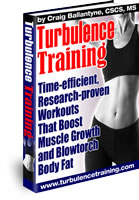Food Variety Is Good
 We’re back today with Brad Pilon, author of the controversial nutrition and weight loss program “Eat Stop Eat.”
We’re back today with Brad Pilon, author of the controversial nutrition and weight loss program “Eat Stop Eat.”
Yesterday we briefly touched on portion control and how it relates to inflammation, which is the root cause of many serious illnesses. So moderation is the key! Our bodies are so intelligent that they easily make allowances for “unhealthy” foods when it is in moderation. So having a verity in your diet is good as we learn today.
*********************
Craig: A lot of people are always recommending that you take two weeks off of dairy or two weeks off of wheat and that will tell you whether or not you’re sensitive to these nutrients or whether you’re intolerant of that. Is that still a good tactic?
Brad: I don’t think it’s a bad tactic necessarily. Again, getting back to the idea, there are foods you’re going to eat that you’re not going to agree with. So, if you’re having GI problems, if something is not right, it’s not a bad idea to take the time and figure out what’s going on.
What you have to watch for is becoming obsessive compulsive about this and starting to think that every single food causes a bad response, or constantly pulling things out of your diet and just never touching it again. Really, the goal of health, as odd as it is, is to be able to eat with as much verity and eat crappy foods as often as possible and be healthy.
The idea of just living off of green peppers, oranges, and certain meats for the rest of your life is RATHER BORING. We want to be able to eat as much as possible, as many different things. So, if something is giving us some issues it’s a good idea to find out what it is and maybe cut back on it, but the idea of repeatedly doing that, continually ripping foods out of your diet and just sort of never replacing them because you’re always worried something is going to give you an upset stomach or make you feel bad is something you’ve got to be aware of.
This is a hard pill to swallow, but it actually may be psychosomatic. You may be creating the stress of that food, the effect that food has on your body, by simply being stressed out about eating that food. It’s odd, but true.
Craig: That kind of makes me think that I see all these people living to 75 and 80 years old who smoke cigarettes, who literally put poison in their body, inhaling it, burning stuff into their lungs on a daily basis multiple cigarette, and here we are talking whether or not someone should eat a slice of bread. It really kind of gives you a better perspective.
Brad: Oh, absolutely. When people ask, “How bad is sugar for me?” You kind of ask them back, “How bad do you think it is?” They’re like, “I think it’s absolutely horrible.” Well, then for that person if they have such a fixation on sugar being so bad for you, if they eat it, they get stressed thinking they’ve eaten something terrible. This is actually worse than someone who doesn’t care at all.
It’s really interesting how the mind and body sort of connect like that and how if you get truly stressed out about something it can actually manifest those effects in your body. It really sounds kind of hokey pokey psychological stuff, but it is, in fact, very true, and it happens with foods all the time.
That’s kind of the basis of food aversions. If you had an bad experience with something you ate, and every time you go near that food you’re not going to eat it.
Let’s say an example if this is when you were in high school, you drank too much and threw it up. I know people to this day who can’t touch Peach Schnapps, because they had that aversion.
If you stress out about the foods you eat that stress manifests, it’s the same idea. There’s so many people who live for an extended period of time that drink routinely and smoke regularly, they don’t stress out about the fact that it is bad for them so it doesn’t manifest.
Craig: We’ll come back to longevity in a bit, because it’s something we’re both interested in and you take a little bit more laissez faire approach to it than I. I’m always trying to see how can I eat 30 servings of fruits and vegetables in a day. So, we’ll talk about that later in this interview series.
That’s it for now join me tomorrow for part 3 of this expert interview series with Brad Pilon.